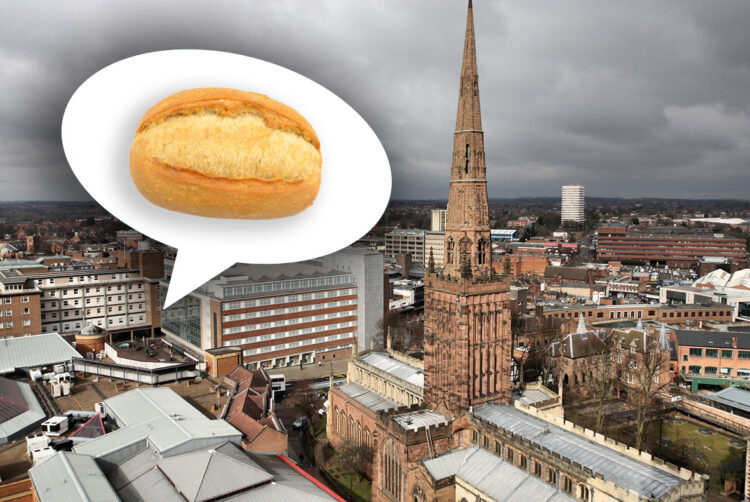He calls it a batch: What strategists need to know about location

Opinion
GroupM’s latest research and a Jamie Paterson chant both highlight the importance of local pride and regional nuance — and why brands and strategists must understand this.
Last month, Jamie Paterson scored a brilliant last-minute winner for Coventry City against Portsmouth and jubilant fans serenaded him with: “He calls it a batch. He calls it a batch. Jamie Paterson. He calls it a batch!”
The “batch” in question is a bread roll and the song celebrates Paterson’s Coventry roots and his use of the local term (fun but important fact: 20 miles up the road in Leicester, they call it a cob).
At the risk of overanalysing a football chant, the song tells us much about the hidden power of local pride, regional nuance, community bonding and humour.
Defining identifier
These themes are the spine that runs throughout GroupM and Mindshare’s Shaping the Nation research, developed in partnership with a regionally authoritative set of UK media partners — Reach, 5, JCDecaux, Blis, Mobsta, Sky and Captify.
The research could not be better-timed. In media-targeting terms, there is a growing realisation that using geography as a “match key” to identify and target audiences can be much more effective than attempting to aggregate together an individual’s ID from disparately held and often inconsistent first-party data.
Geo delivers rich insight into people’s behaviours, attitudes, motivations, preferences, values and interests. It can do this in a scaled, joined-up, readily available and privacy-compliant way, allowing planners to bypass walled gardens (and low match rates) to select the best channel for the task.
What makes Shaping the Nation so exciting from a media strategist’s perspective is the additional richness and nuance it brings to the targeting capability of geo.
We can go well beyond bricks-and-mortar targeting or postcode optimisation by recognising that place is a defining and powerful identifier for people. Within this identity lies nuance and rich opportunities for brands to connect.
There are many findings likely to be of interest to media strategists, but allow me to highlight three in particular.
‘Place’ beyond clichés
“North vs south” is a horribly dated misnomer. Our perspectives are much more likely to be shaped by whether we live in a city, town, village, coastal region, countryside or suburb than whether we live north or south of the Watford Gap.
Leeds might be 10 miles away from Guiseley but, as a city, it potentially has more in common with London than it does to the town to its north west.
People in the countryside generally have a stronger sense of belonging. People in cities tend to be more ambitious (Belfast, Leeds and Edinburgh stand out here), more future-facing (Liverpool and Manchester) and gain a strong sense of identity from their location.
Conversely, people living in towns score lowest on both location identity and sense of belonging, with 42% of town dwellers feeling that their area is stagnating.
And, sorry to disappoint Alan Partridge, but London isn’t a behemoth without human connection — it’s a giant patchwork made up of strong communities centred around boroughs and high streets.
Media planners need to look beyond geographic regions and think about the nuance within each area.
‘Community’ beyond online
In our research, 7% of respondents claimed that they live in their “dream location” and it’s fascinating to understand what individual factors are typically present for these people. Local facilities and weather play a part (this is the UK, after all), but the key variable is a sense of community.
As media strategists, we can be guilty of thinking about “community” in too narrow a sense — defaulting to online communities around shared interests. But it’s clear from the research just how powerful local communities can be, how valued they are by people and how, conversely, the loss of shared spaces and “third places” in local communities — particularly in our towns — is so deeply felt.
For the right brand committed to genuinely creating a deep long-term impact within a community, there’s a definite opportunity to step up here. And Stoke is a good place to start — it’s the place in the UK with the lowest number of public buildings per capita.
‘Influence’ beyond social
When it comes to influence and trust, a form of digital divide is alive and well.
In the countryside, trust in platforms like Instagram and TikTok is much lower than in urban areas. Cities tend to be younger, and younger people are more likely to give digital sources, such as online communities and social media influencers, a chance to influence their thinking.
Meanwhile, rural areas are populated more by a higher number of Gen X and baby boomers, who tend to rely on a tighter selection of established channels. The “influencers” here are far more likely to be TV, newspapers and local radio, along with friends and family. When we’re thinking about working with influencers, we’ll do well to be mindful of this.
Missing the mark
Shaping the Nation highlights that the opportunity for brands to get more involved in local communities is significant. But to do this successfully, local representation within advertising needs to improve. Current brand efforts can often miss the mark, relying too much on stereotypes and inauthentic interactions.
This problem is particularly pronounced in some northern regions, with local audiences alienated by inaccurate storytelling and symbolism.
People want brands to engage with humour, to bond with them over shared experiences, to use local cues and insider moments to connect people together. And when brands get this right, the rewards are huge.
There are many reasons why Yorkshire Tea won an IPA Effectiveness Gold, but their ability to connect with Yorkshire and to connect Yorkshire with the UK is chief among them.
Strategists can either view regional nuance as an annoyance to be flattened out or as a rich playground for creativity, connection and competitive advantage. Many take the first route — but if Paterson called it a bread roll, they wouldn’t sing a song about him.
 David Wilding is a GroupM strategist
David Wilding is a GroupM strategist




